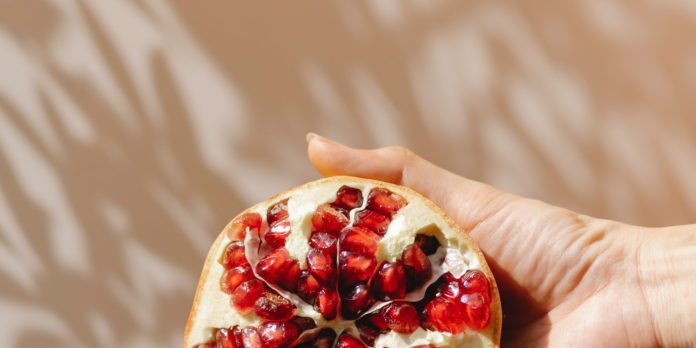Facts About Buddha’s Hand
The Buddha’s hand is a naturally occurring citron fruit (Citrus medica) variant. This yellow fruit, which can also be referred to as fingered citron, is divided into segments that resemble fingers when cut open.
Historians think that Buddhist pilgrims from India were responsible for bringing the fingered variety to China, which is where they believe the name of this variety came from.
Citrus medica var. sarcodactylis is its name in the scientific community. The standard type may grow to a height of 8 to 15 feet, while the dwarf version can grow to about 5 feet. Temperatures are not permitted to drop below 4.4 degrees Celsius (40 degrees Fahrenheit).
The Buddha’s hand tree is not resistant to cold since it has to be grown in a USDA hardiness zone of at least 10 or 11 to be successful.
It’s impossible to say when and how it first came to the Far East. Nevertheless, there is some evidence to suggest that this occurred sometime after the fourth century AD.
After the fall of the illustrious Tang dynasty, historical records from the empire of Min (909–945 AD) demonstrate that it was popular during the period and considered an important fruit.
It is a common practice during the Chinese New Year holiday to give a gift of a Buddha’s hand tree that has been potted. It was thought that this would bring the receiver a prosperous new year.
It is thought to signify happiness, longevity, and riches in traditional Chinese medicine and Chinese mythology. At their temples, it served as a sacrifice in the past, and it continues to do so now.
What Does It Taste Like?
It’s possible to eat Buddha’s hand fruit. This is the most authentic way to describe it. The flavor is similar to that of a lemon peel, yet it is neither sour nor bitter. There is a whiff of sweetness, but it’s not overpowering.
The fingered citron is almost entirely composed of its rind because it does not contain any pulp, seeds, or flesh on the interior. There is neither juice nor moisture present, in contrast to most fruits.
Even though the flavor is enjoyable, the texture is not. It has the texture of eating raw eggplant but none of the astringency. Because of this, it is more commonly utilized in culinary applications than being consumed as a raw, complete fruit.
What Does It Smell Like?
Lemony and flowery best describe the aroma of freshly cut Buddha’s hand. It appears that everyone, including guys, adores it. A room will continue to smell like lemon and lavender for up to two weeks if a full lemon is placed on the kitchen counter or used as a decorative item in the room.
Health Benefits of Buddha’s Hand
The Buddha’s hand has a wide range of curative applications. It is useful in the treatment of a wide variety of medical ailments. Fruits like these are extremely nutritious, so include them in your diet. The ensuing are some of the health advantages it offers:
Relieves Pain
Agents for reducing pain are aromatic organic compounds like coumarin, limonin, diosmin, and bergapten, which may be found in the Buddha’s hand. They’re also anti-inflammatory and useful for reducing swelling and discomfort.
The Buddha’s hand has been utilized for its analgesic and anti-inflammatory effects for hundreds of years. It can reduce inflammation as well as the pain that is brought on by things like cuts, surgeries, bruises, wounds, and sprains.
Benefits Respiratory System
This is the most significant advantage that may be gained by eating the Hand of Buddha fruit. This citrus fruit acts as an expectorant and is one of the most effective and non-painful treatments for coughs that are accompanied by catarrh or phlegm.
In addition, the health advantages of this astonishingly nutrient-dense fruit can be increased by first soaking the fruit in water before eating it.
Discomfort during Menstruation
It has been learned for a long time that Buddha’s hand can be an effective natural medicine for women who suffer from exceptionally severe menstrual cycles, both in terms of cramping and bleeding as well as mood swings.
If you’re dealing with an unpleasant issue like this one, the fruit’s anti-inflammatory properties, together with some of its other antioxidant properties, make for an ideal remedy.
Antioxidant Benefits
The Buddha’s hand has a high concentration of vitamin C, which serves as an antioxidant. It rids the body of free radicals and protects the cells and tissues from oxidative damage. It improves the body’s ability to fight infections and lowers the danger of developing cancer.
Antioxidants have been shown to postpone the aging process of skin cells, leading to healthier and more attractive skin. Limonin is a compound that possesses anti-cancer qualities that make it effective in the battle against breast cancer as well as colorectal cancer.
Immune System Health
There is a particular polysaccharide that can be discovered in Buddha’s hand that has been directly related to the stimulation of macrophage activity as well as an increase in the speed and effectiveness of the immune system.
Despite the fact that this is more commonly thought of as a preventative measure to maintain a strong immune system, eating Buddha’s hand when you already have a cold or the flu is a good idea because it can dramatically shorten the time it takes to recover.
Restful Night’s Sleep
 Vitamin E and vitamin C interact synergistically in the body to achieve their respective goals of reducing inflammation and accelerating wound healing. Both of these factors are required for blood vessel relaxation, which makes it simpler to fall asleep since it enhances the way oxygen is transported all through the body.
Vitamin E and vitamin C interact synergistically in the body to achieve their respective goals of reducing inflammation and accelerating wound healing. Both of these factors are required for blood vessel relaxation, which makes it simpler to fall asleep since it enhances the way oxygen is transported all through the body.
In addition, they have the ability to stimulate the creation of serotonin, which boosts mood, promotes relaxation, and is beneficial to general health. You will have a more manageable time getting a restful night’s sleep on a daily basis if you consume these vitamins orally or apply their extracts to your skin.
Lowers Cholesterol Levels
Consuming Buddha’s hand fruit has also been related to lower cholesterol levels. It is rich in phytosterols, which are substances derived from plants that have the capacity to lower cholesterol levels, as well as treat and prevent atherosclerosis and arteriosclerosis.
In addition to this, they control the absorption of fat and reduce LDL (low-density lipoprotein) cholesterol, both of which are dangerous fats that may cause your arteries to become stiff and blocked, boost your heart rate, and place you at risk for other conditions such as strokes or heart attacks.
Regulates Blood Pressure
Because the alcohol extracts in Buddha’s hand relax the blood vessels and make it easier for blood to circulate, the overall effect is a reduction in blood pressure. Vasodilation has the effect of greatly lowering the strain that is placed on the blood vessels, which in turn ushers one to an increase in blood circulation and a decreased risk of heart attack, stroke, and atherosclerosis.
Dermatological Care
Due to its anti-inflammatory properties, Buddha’s hand can be of considerable benefit in alleviating the discomfort caused by skin disorders, including eczema and psoriasis. As a result of this, you may get rid of these problems naturally by using the extract that comes from this fruit.
When taken internally, it does not only serve to protect the skin from the damaging effects of ultraviolet radiation, but it also helps to protect the entire body.
Side Effects of Buddha’s Hand
If you take an excessive amount of Buddha hand fruit, you run the risk of experiencing some of the adverse effects that are listed below:
- Some people have a high risk of developing a severe allergy to the Buddha’s Hand fruit, which can manifest as symptoms as severe as vomiting, diarrhea, skin rashes, and even difficulty breathing. In order to take the most satisfactory possible care of your health, you need to get familiar with the amount of tolerance that your individual body can handle. If you suspect that you have an allergy to the substance in question, it is in your best interest to keep away from ingesting any food of this sort for the rest of your life.
- If you have allergies, inhaling the aroma of Buddha hand fruit may trigger them, causing you to suffer from symptoms such as sneezing, congestion, and irritability.
- Those who are taking medications and want to use Buddha hand fruit as part of their diet plan should always keep in mind that there have been reported instances where this food has interfered with the effectiveness of a certain medication. This is something that people who want to use Buddha’s hand fruit as part of their diet plan should always keep in mind.
 If you are going to be on any type of medication, it is in your best interest to speak with your physician first before adding anything more to your regular eating regimen.
If you are going to be on any type of medication, it is in your best interest to speak with your physician first before adding anything more to your regular eating regimen.




